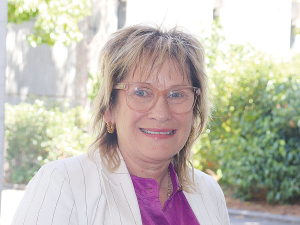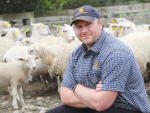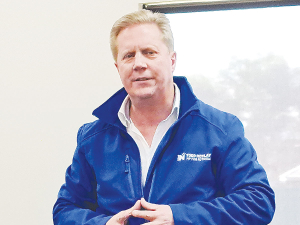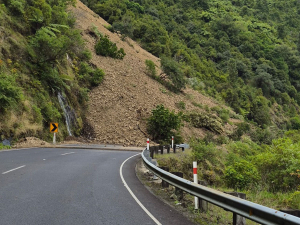"I just scratch my head in wonderment when people say to farmers, 'just change what you farm'."
Leading AgResearch scientist Dr Robyn Dynes says such comments completely fail to recognised that changing land use is a very complex matter.
Speaking at a recent Massey University conference dealing with land use, Dynes said that while NZ aspires to grow the value of land-based exports, societal expectations are that this shouldn't happen at the expense of wider social, cultural and environmental well-being.
She says one of the problems in accurately determining the best options for land is that information is fragmented, not easy to obtain and not holistic in nature. Over the past 50 years there have been huge land use changes within NZ, which has seen for example the growth of the wine and kiwifruit industries. Forestry has also grown, but with pressure for the expanse of urban areas, highly productive land is facing challenges.
Dynes says the motivation for change now is different to what it was many years ago.
"As we move into a future world where we have a change in climate and we have regulations, business as usual will not work in some parts of the landscape, so to meet regulatory requirements we will need change," she explains.
But Dynes quickly points out such changes will also bring opportunities, as has happened in the past. One interesting driver is consumer preferences, which have and will lead to new crops being grown. However, she adds that trying to second guess consumer preferences decades out is somewhat problematic. Dynes says to some extent it's not about what can we grow, it's where the markets are, because we are a 'discerning market supplier' and that is the challenge.
"But we do know that if we grow high quality food there is a market demand. Then we can grow that market as we have seen through out cooperatives, in the likes of Fonterra and Zespri.
"Looking into the future, NZ will still have a livestock sector because much of our landscape is best suited to livestock and the dairy and red meat sectors will continue to be a significant part of our economy. We will see change, and this will be driven by opportunity and need," she says.
According to Dynes, our mixed cropping farmers will keep evolving where there are markets. She says in terms of perennial crops, a big capital investment will be required.
Technology Driving Change
NZ farmers have a proud history in adopting science to drive production, productivity and community outcomes.
Today, for example, most dairy sheds have a computer in them and farmers will say they spend many hours inputting and analysing data.
One of the emerging items on dairy farms now is wearable technology, such as collars on cows that can measure a multitude of factors - including whether or not a cow is in heat, but also other factors such as feed intake. These also measure aspects of an animal's behaviour and other key insights which have potential to save time and deliver benefits.
According to Dynes, such technology enables farmers with large herds to easily monitor individual animals like they did in the past.
She believes precision agriculture is one tool that has a lot to offer in dealing with the complexities of land use change. She says it's a big interest of hers and should help find more efficiencies.
But Dynes adds, like all technologies, the users have got to see value in using it and it has to fit in with their business systems. She says right now people are capturing the advantage of precision agriculture.
"Let's face it, every farm has biological variability. I think that in terms of meeting our environmental expectations on things like greenhouse gases, precision agriculture can offer an enormous amount," she says.
Dynes says getting greater uptake of science and technologies is something that is still a work in progress.
She says AgResearch is taking the question of itself as to whether it is sufficiently connected to farmers and rural advisors. While she personally has many opportunities to engage with farmers, many staff in AgResearch have fewer opportunities, and we need to understand the importance of this connectivity to end-users in growing the impact of our science.



















